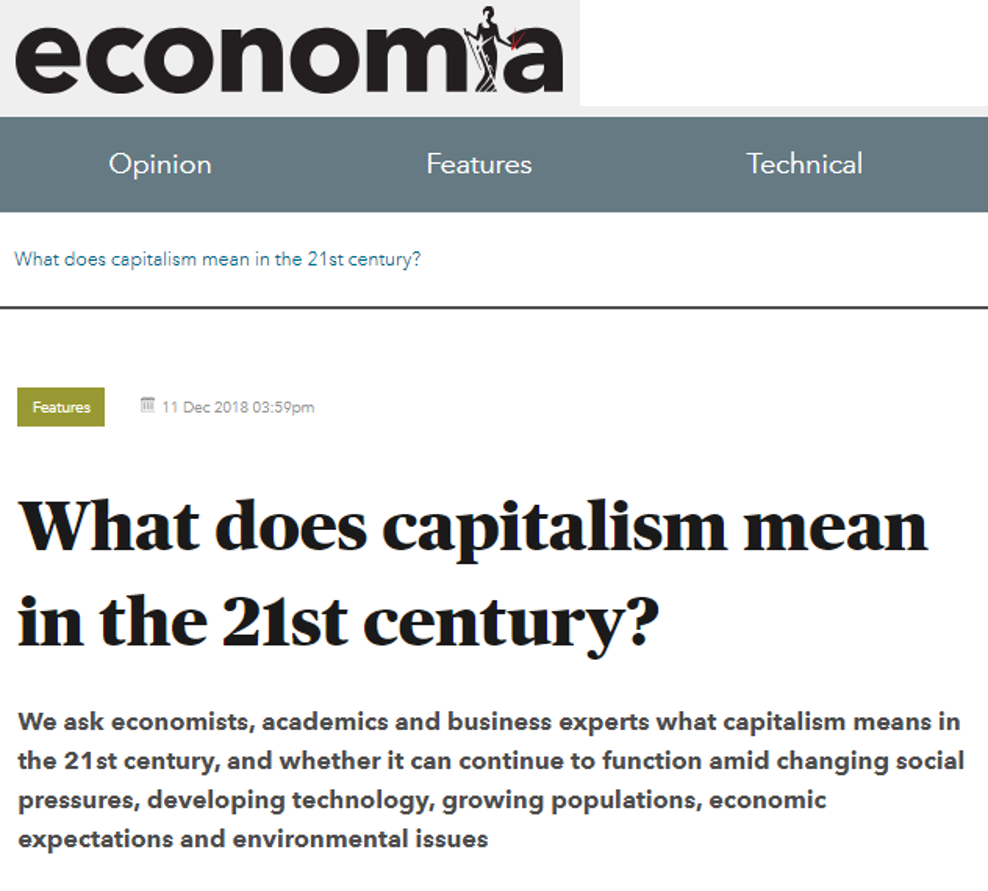
Economia, the magazine for the ICAEW (Chartered accountants in England and Wales) commissioned the views of the Maturity Institute for this feature in its December 2018 edition. The Maturity Institute’s view was one of 13 submissions published. The full version is shown here.
“Capitalism was a naturally occurring, human system long before governments and regulators got involved. Humans always created value to keep a roof over their heads. Natural systems are not always the best designed though and failure can always be traced back to humans. Some clever people play by their own rules; others game the system(e.g. tax avoidance). The GFC cruelly exposed the power of human behaviour to destroy the whole system. ICAEW members, who have come to the same conclusion, can do something about it.
Bankers may have taken Keynes’ ‘animal spirits’ to new lows but the whole system is now infected. Behind the PR veneer of corporate reporting is a wild beast straining at the leash of Adam Smith’s ‘theory of moral sentiments’, his lesser known work that imbues his ‘Wealth of Nations’ with its social licence. We have all benefited from capitalism but it is a system that must now be redesigned to heal itself. It has to be driven explicitly by societal value, not profit: a shift requiring some sophisticated thinking and mature practice. Perhaps ICAEW members should first look at what change is required in their own backyard?
Balance sheets and P&L conventions never accounted for the ‘intangibles’ of corporate governance and culture, so it is no wonder this failing undermined the whole edifice. The false dichotomy, of shareholder value and societal interests competing with each other, also played a part. Shareholder and societal interests are neither mutually exclusive nor a zero-sum game.There is already clear and convincing evidence that the best returns come fromcompanies that put customers and society first.
If accounting theory and practice can catch up with this reality the profession will be able to transform itself and future-proof the careers of its most professional practitioners. It means going back into the classroom though and learning how the scientific method can be applied to intangibles. Measures of sound corporate governance and healthy organizational cultures are already available for your next annual report. Capitalism is far from finished and is still the best option available for total stakeholder value and social cohesion. It requires much more than a makeover though. Let’s not underestimate the task here; this is a new paradigm of responsible, inclusive capitalism.”
See also ‘The Mature Corporation – A Model of Responsible Capitalism’ by Paul Kearns & Stuart Woollard

Comments are closed